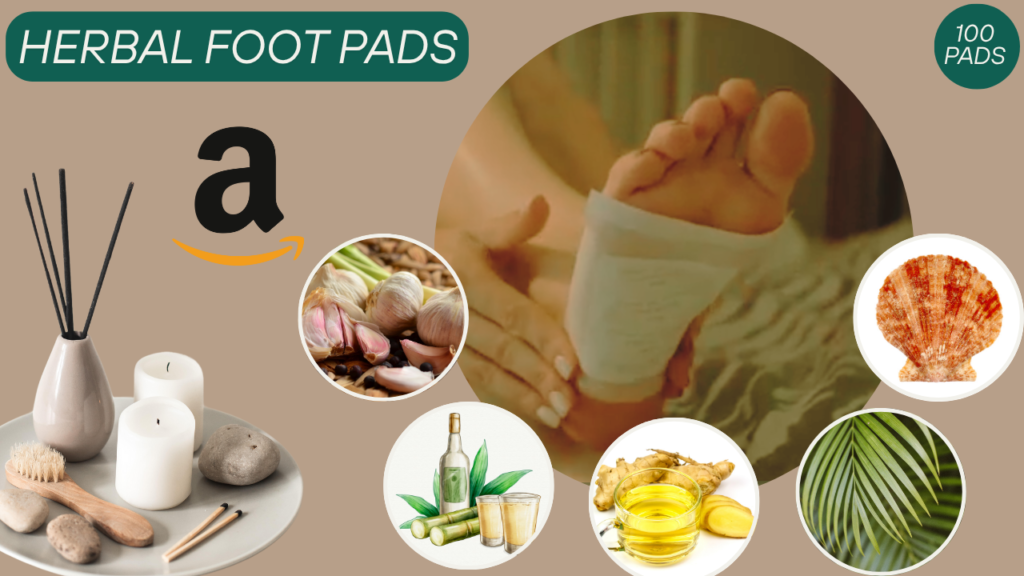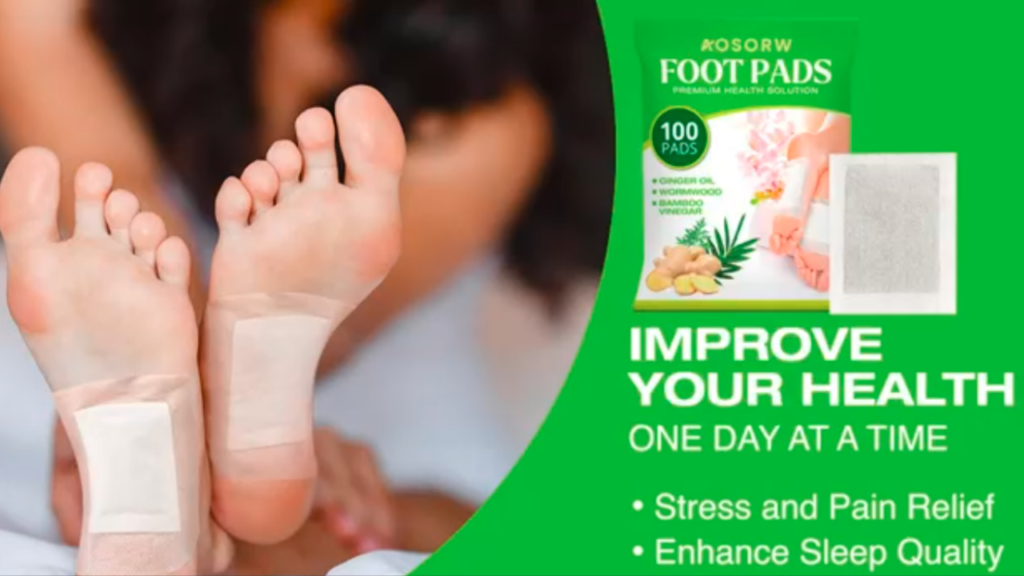If you’ve been searching for a natural way to relieve stress, detoxify your body, and improve sleep, herbal foot pads might have caught your attention. These adhesive patches, infused with ingredients like ginger, bamboo charcoal, and wormwood, claim to draw out toxins while you sleep—but do they actually work?
In this 2,000-word deep dive, we’ll explore:
✔ What are herbal foot pads and how do they work?
✔ Key ingredients & their supposed benefits
✔ Scientific evidence (or lack thereof)
✔ Step-by-step usage guide
✔ Top-rated product review (AOSORW Herbal Foot Pads)
✔ Potential risks & who should avoid them
Table of Contents
ToggleWhat Are Herbal Foot Pads?
Herbal foot pads are adhesive patches placed on the soles of the feet overnight. They typically contain a blend of:
Bamboo charcoal (purported to absorb toxins)
Ginger extract (anti-inflammatory, circulation-boosting)
Wormwood (used in traditional medicine for detox)
Tourmaline (a mineral believed to emit negative ions)
How They Claim to Work:
Proponents suggest that these pads “pull out” impurities through the soles of the feet (a concept rooted in reflexology). After use, the pads often turn dark brown or black, which marketers claim is evidence of toxins being removed.
Do Herbal Foot Pads Actually Work? The Science Behind the Claims
1. The Toxin Removal Myth
No scientific proof that foot pads extract heavy metals or metabolic waste.
The dark residue is likely due to sweat interacting with bamboo charcoal (not toxins).
2. Potential Benefits (Anecdotal & Minor)



3. What Experts Say
FDA does not regulate detox foot pads.
No peer-reviewed studies confirm their detox claims.
May help with stress relief—but not as a medical treatment.
AOSORW Herbal Foot Pads: An Amazon’s Choice Product Review
Key Features:




Reported Benefits (User Feedback):
“Helped with foot pain after long shifts”
“Reduced morning fatigue”
“Feet felt fresher”
Potential Drawbacks:
Sticky residue may require washing off.
No clinical proof of detoxification.
Allergy risk (some users report skin irritation).
How to Use Herbal Foot Pads Correctly
Step-by-Step Guide:
Wash & dry feet before application.
Peel off adhesive backing and apply to the center of each foot.
Leave on for 6-8 hours (overnight is ideal).
Remove in the morning and wash feet.
Repeat 2-3 times per week for “best results.”
Tips for Better Results:
Stay hydrated to support natural detox.
Combine with Epsom salt foot soaks for relaxation.
Monitor for skin reactions (discontinue if irritation occurs).
Who Should Avoid Herbal Foot Pads?
❌ Pregnant/nursing women (lack of safety data)
❌ People with diabetes or poor circulation (risk of skin issues)
❌ Those with sensitive skin (possible allergic reactions)
Final Verdict: Are Herbal Foot Pads Worth Trying?
While herbal foot pads won’t detoxify your body as marketed, they may offer mild relaxation benefits. If you enjoy aromatherapy or foot care rituals, they could be a soothing addition to your self-care routine—just don’t expect miracles.
For those curious, the AOSORW Herbal Foot Pads are a budget-friendly option with mostly positive reviews.
FAQs About Herbal Foot Pads
Q: Why do the pads turn black?
A: The color change comes from sweat + charcoal reaction, not toxin removal.
Q: How often should I use them?
A: 2-3 times weekly—overuse may irritate skin.
Q: Can they replace medical treatments?
A: No. They’re a cosmetic product, not a cure.
Q: Do they help with weight loss?
A: No evidence supports this claim.




